What do they read in successful IT companies? How do books help talented developers and managers? How do companies organize their libraries? About this new project Lifehacker.ru and publishing houses "Mann, Ivanov and Ferber" — "Bookshelf".
To begin with, we decided to look at the Parallels bookshelves.
Parallels employs professionals in Mac virtualization and data center automation. The company, founded by Stas Protasov and Sergey Belousov in 1999, is now known all over the world and has 16 offices in the USA, Europe and Asia. We visited the Moscow office.
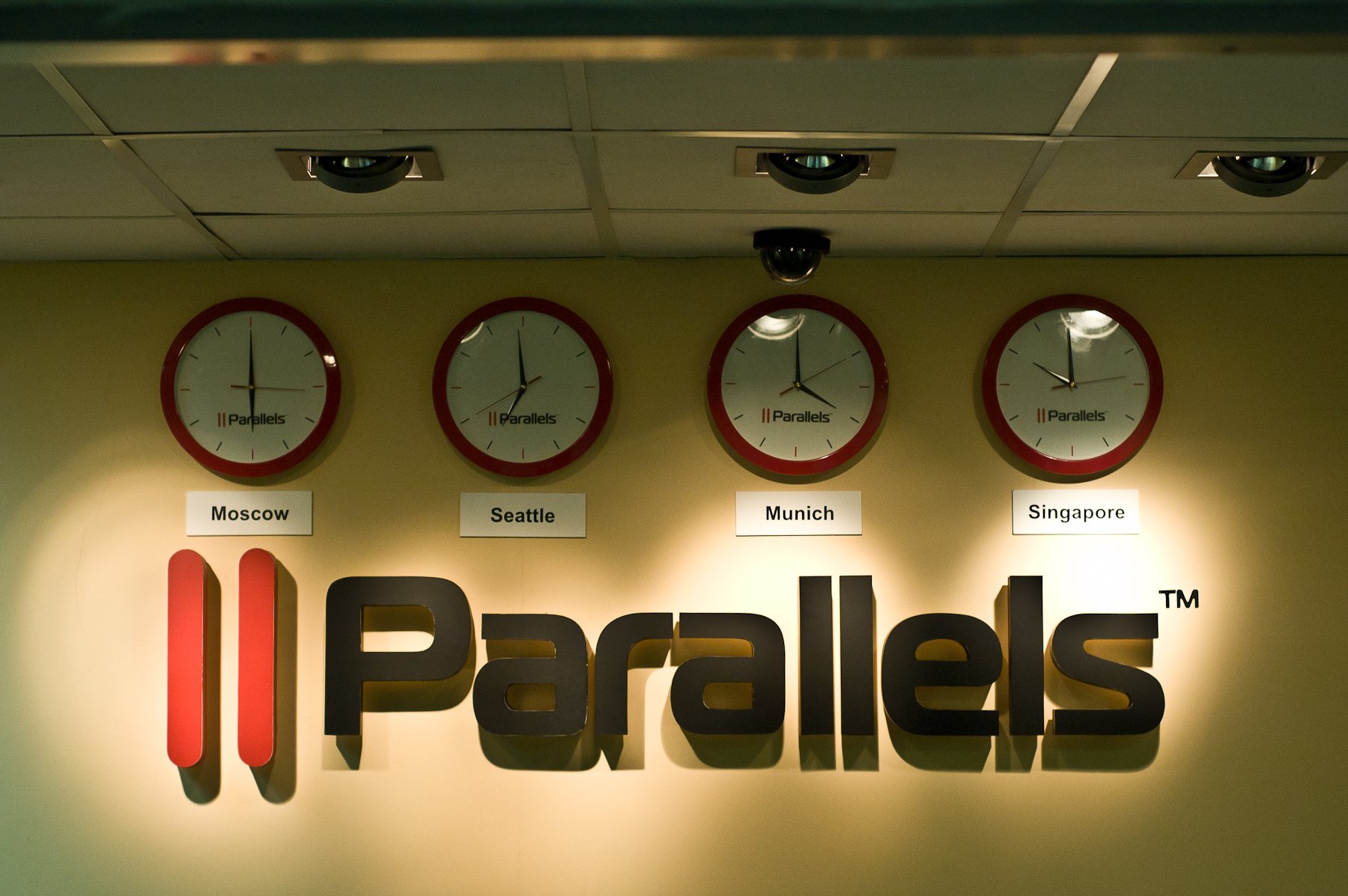
Most of the books in Parallels are spread across the shelves and desks of employees. But there is also this cabinet, a kind of bookcrossing point. The cabinet has its own history.

Julia, PR director of the company, tells:
"The library appeared spontaneously. There were no instructions from above. One of the employees read the book and decided that it would also be useful to others. Others started bringing their own, and in a year we had a whole closet."
Later it turned out that there are such cabinets in almost every one of the 16 Parallels offices. We sighed that we couldn't get around them all.
And here is a simple solution to the problem of taking books away from home libraries.
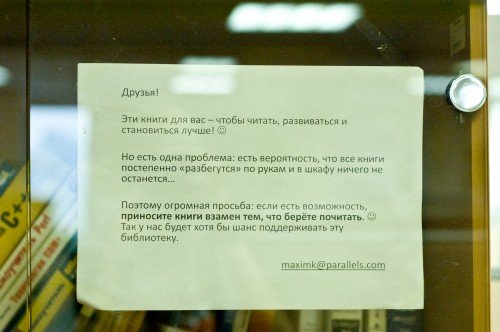
We study the shelves. Two volumes of Physics for the Curious, a three-volume book on Intel architecture, Philip Kotler's textbook on marketing, and for some reason Lukyanenko's "Chistovik".
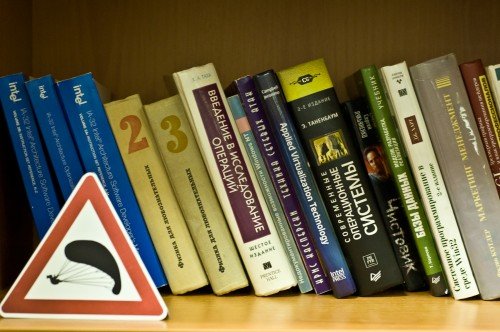
Most books about languages: Haskell, Perl, C++. We were not surprised when we saw books like "Windows Server 2003 for Professionals", "Microsoft Windows 2000 Internal Device" and other grimoires about operating systems.
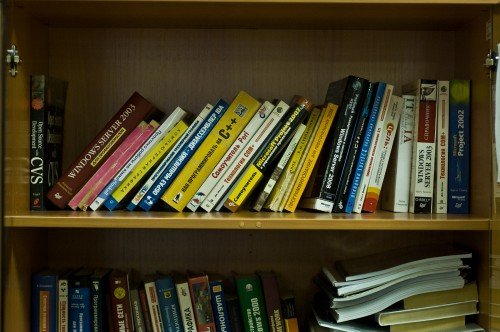

We were glad when we found Robert Kiyosaki's bestseller "Rich Dad, Poor Dad" on the shelf — about how to perceive the world correctly for a future millionaire.
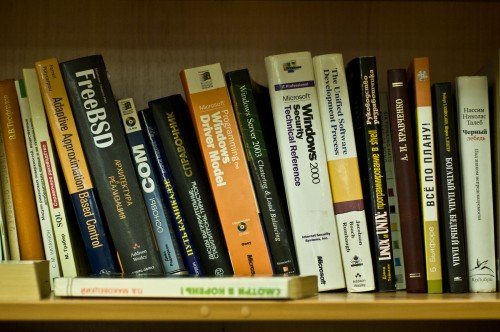
In general, the company believes that it is useful for engineers to know the business component. Many leading developers respect Jeffrey Moore's Crossing the Chasm (about marketing in the high-tech market) and his Inside the Tornado (about development and survival strategies in fast-growing markets). Developers are often advised to read the history of Red Hat, Netscape, Oracle, Napster or Google, so such books do not linger on the shelf.
Julia explains:
"Engineers don't just write code, they create products — and the stories of the ups and downs of companies make it clear how the product should develop."
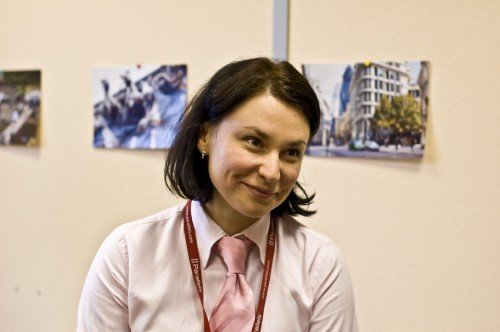
"Sergey Belousov periodically reproaches me that I still haven't read Isaacson's book about Steve Jobs," Yulia shared.
"Black Swan" is a bestseller by mathematician Nassim Taleb, who studies the role of luck and chance in business and life. We adore Taleb, his book "Fooled by Chance" became a bestseller.

Parallels' main office is located in the States, hence a lot of books in English — this is the internal language of the company. Products are being developed in Russia, and localization is being done in other offices in Asia and Europe.
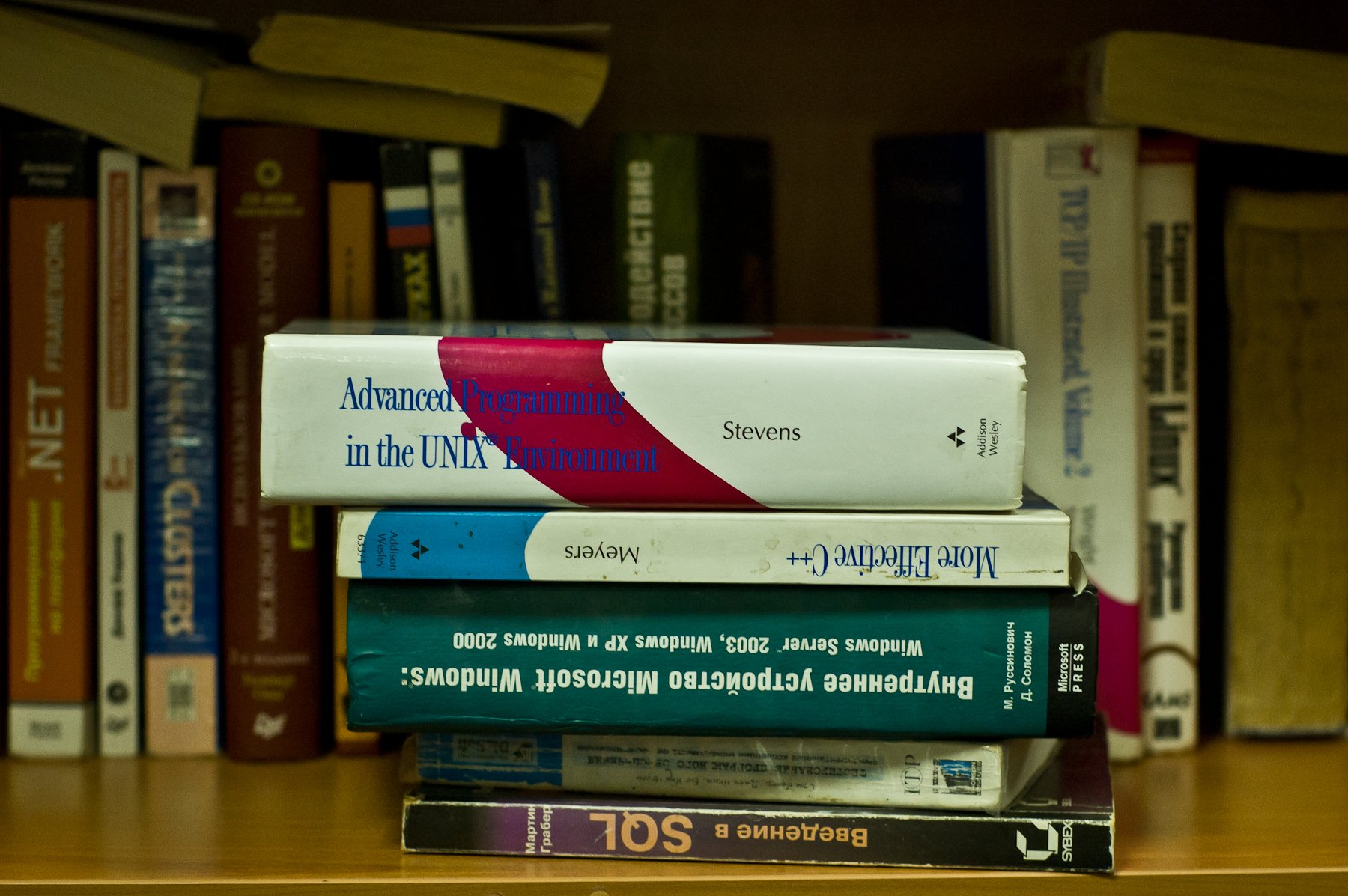
The library in the American office appeared differently:
"Almost all the books that are in the office in the States were brought from home by our CEO Birger Steen," says Yulia.
Let's open a little publishing secret. One of the greatest joys for a person who publishes books is to accidentally see his book on the table of an intelligent person. At one of the Parallels tables we met our "Runetology".
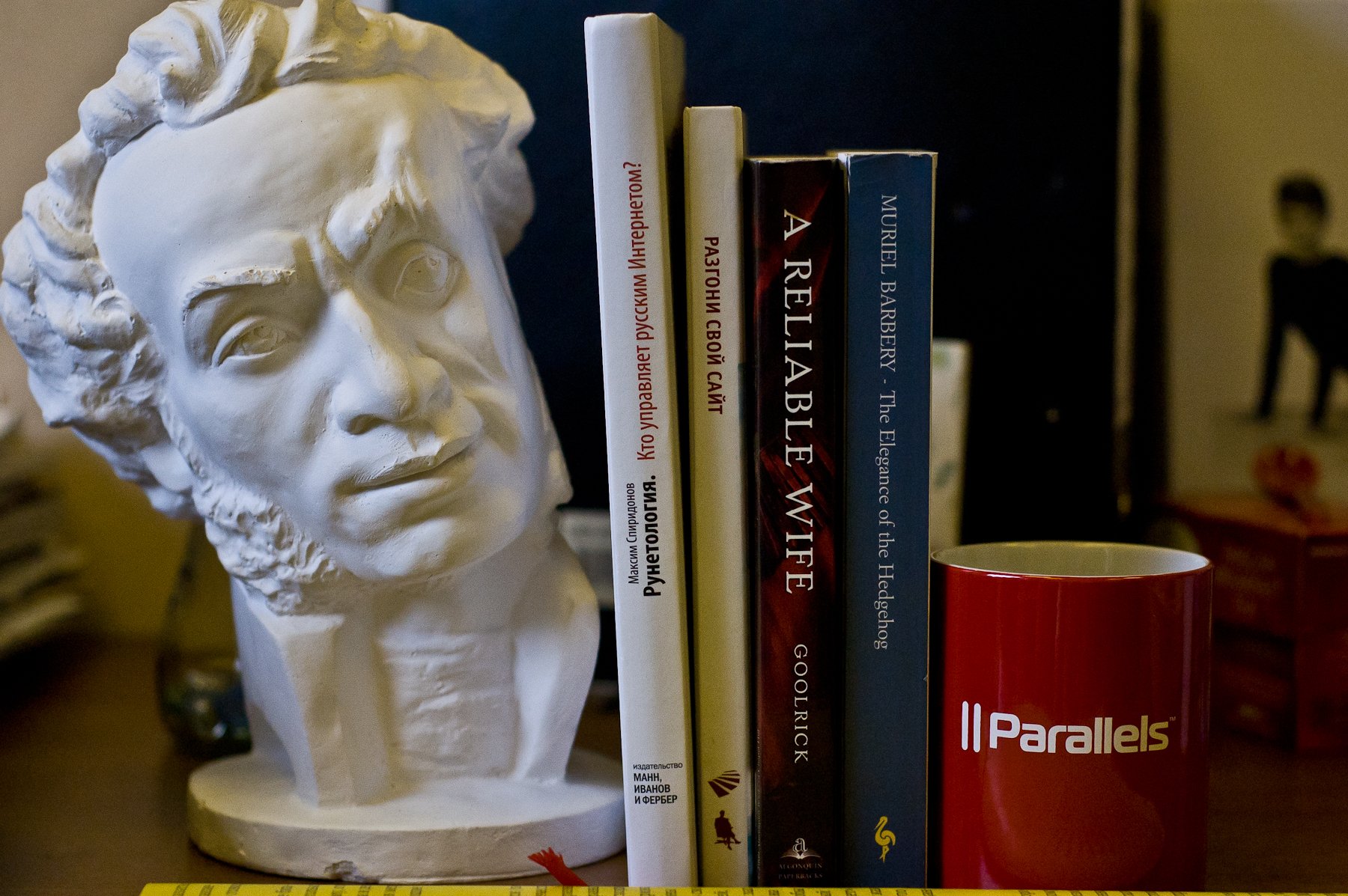
By the way, how do you like this neighborhood of books: the novel "A Reliable Wife", and next to "Disperse your website" and "The Elegance of a hedgehog"?
Alexey Kosciusko shows a bookshelf above his desk and tells a terrible secret:
"Not everyone in our company has read Knut."
I remember Knut Hamsun, but I'm wrong. Alexey points to Donald Knuth's monograph and explains:
"It's like a textbook by Landau and Livshits, only on programming. I rarely need the first volume, so I took it to the library."
Alexey has read many of the books on his shelf, because he is working on a book himself.
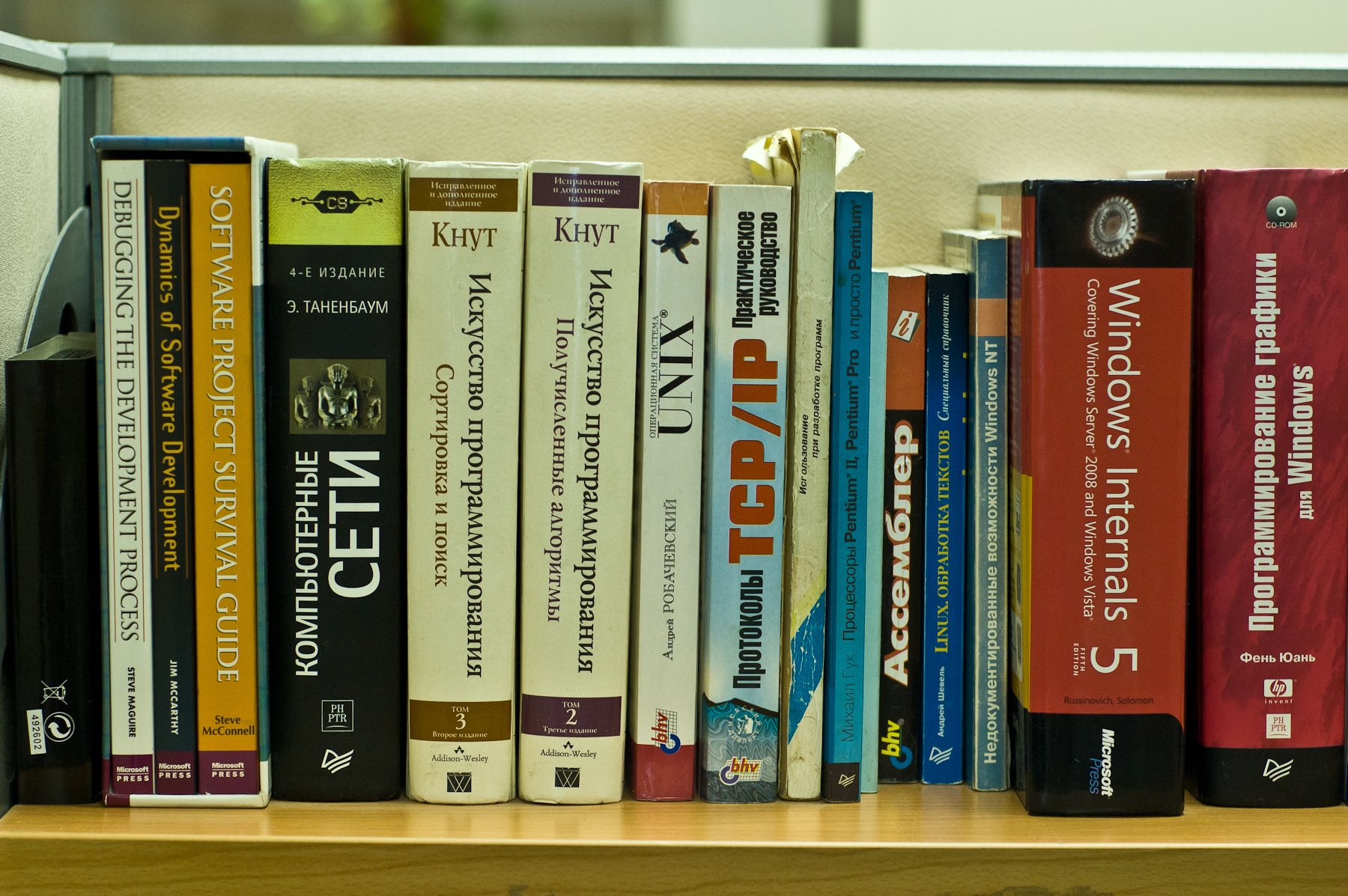
Stop. What-what did you say about the book?
"Yes, we are planning to release a book. When developing our virtualization products, we go deep into operating systems, so we know something that many experts do not suspect. In the book we will talk about the undocumented features of Windows. If anything, it will be possible to blackmail Microsoft with this book," Julia jokes.
A guest editor helps Alexey in writing the book.
Probably, in this draft Alexey has information for blackmailing Microsoft.
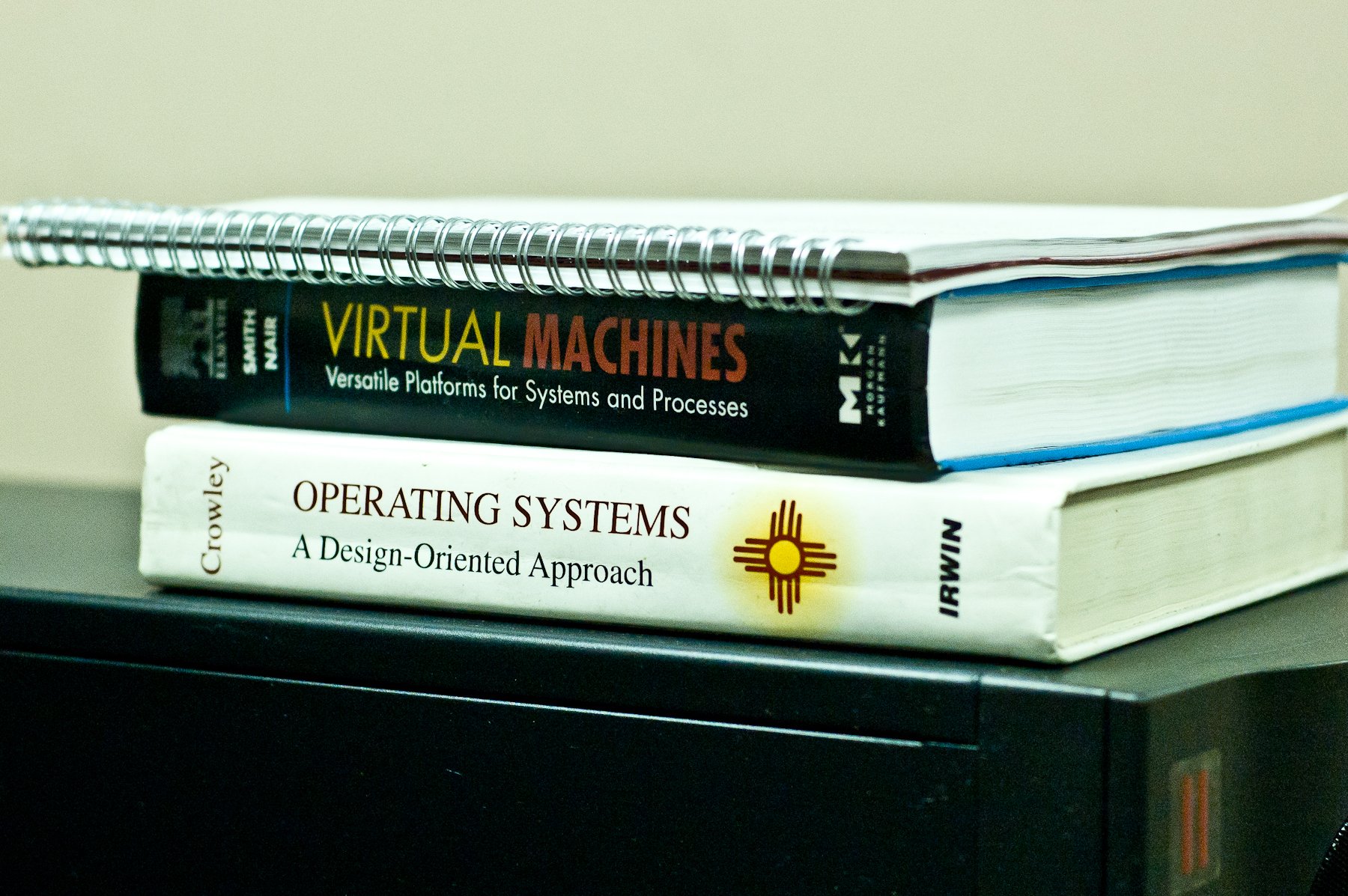
Before leaving, we looked into the office of engineers Anton Yenakiev and Lesha Koryakin. The first one heads the development of the hypervisor, and the second one is a technical consultant of Stas Protasov.
They packed their bookcase. Yeah, here's another book about the history of the company — "Showstopper" by Pascal Zachary. She tells how Bill Gates and Microsoft came to success.
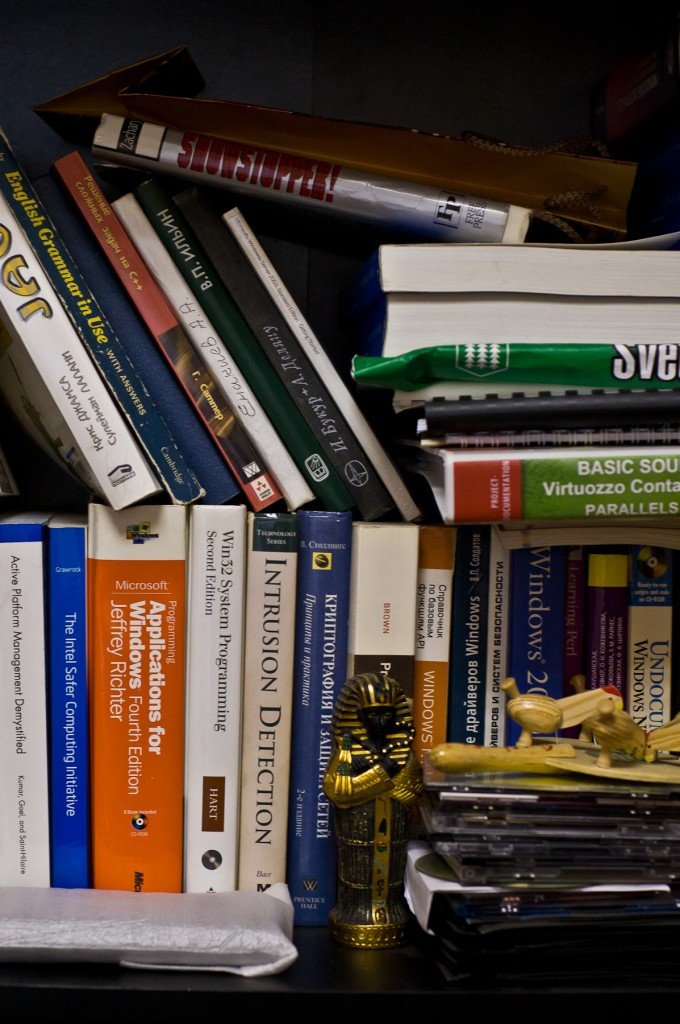
The shelf below is another motley set — Chuck Palahniuk, "Time Drive", a guide to St. Petersburg and "Inside Windows Server 2003".
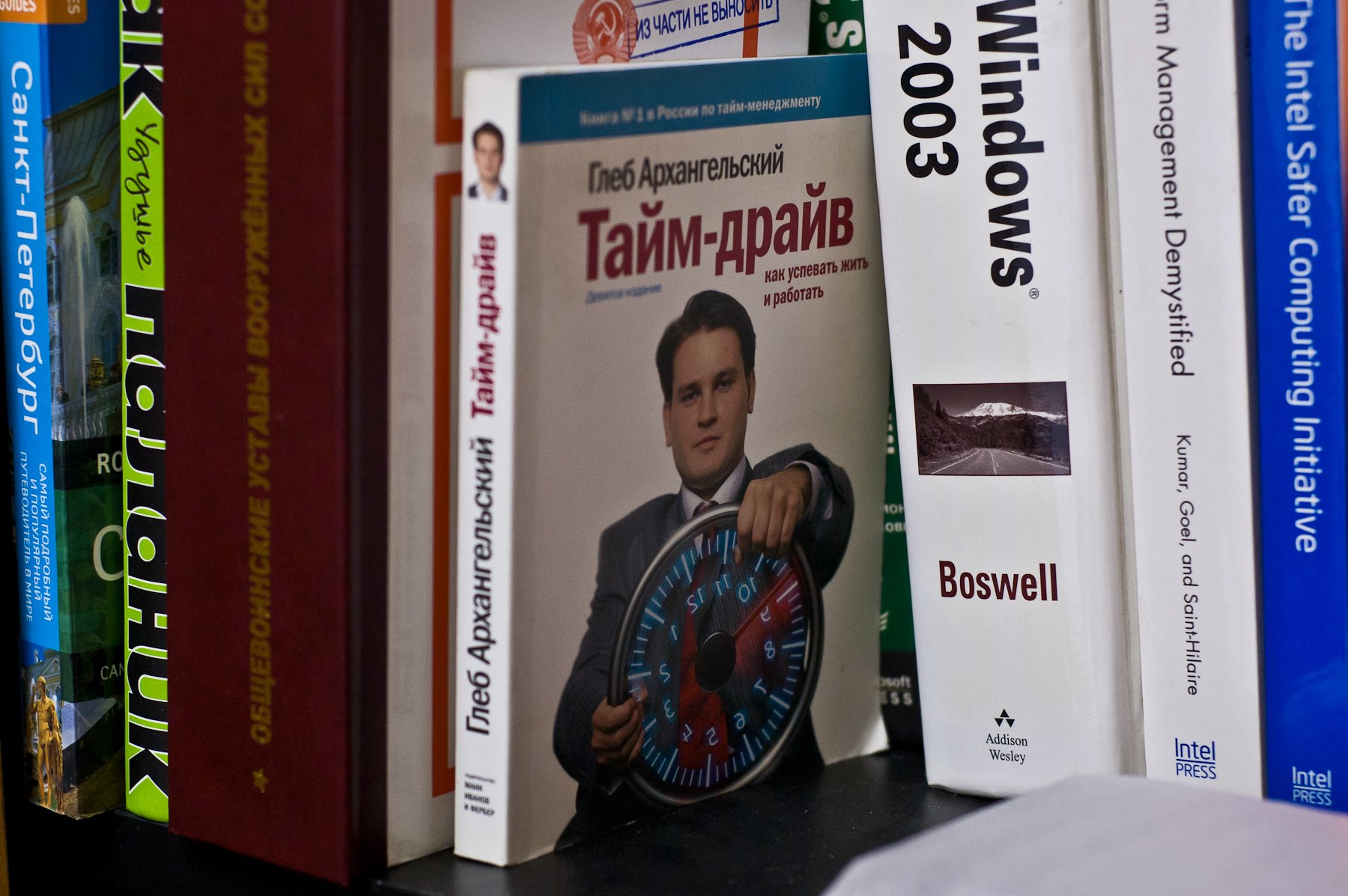
Finally, Julia told us about her plans for the library:
"We want to add a monitoring function to the Intranet. We will also collect suggestions about what to buy in the library. We will recruit 10 people who want a certain book - we will order it on Amazon. I want to maintain a passion for reading."
We — the employees of the publishing house "Mann, Ivanov and Ferber" — make the heading "Bookshelf", because we are terribly fond of peeping at which books smart people choose. If you have ideas on how to make the project more interesting, or you are ready to share life hacks on maintaining an office library, write to us in the comments.
Instagram Facebook and social networks owned by Meta Platforms Inc. are prohibited in the territory of the Russian Federation.